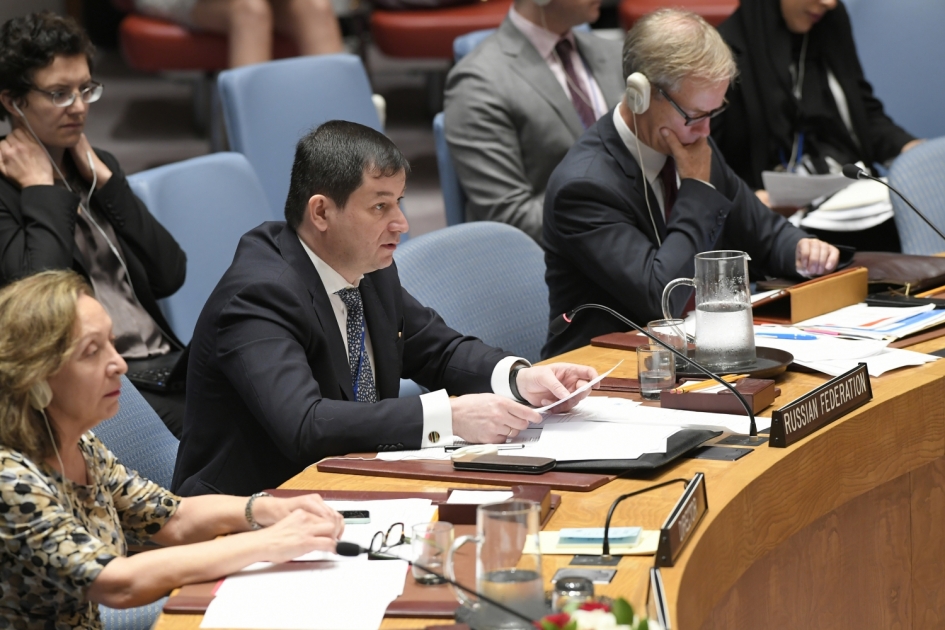Statement by Mr.Dmitry Polyansky, First Deputy Permanent Representative of the Russian Federation to the United Nations, at the Security Council on the situation in Burundi
We thank Special Envoy Michel Kafando for his briefing on the constitutional referendum held in Burundi and the development of the situation there.
We have taken note of the report of Mr. Jürg Lauber, Permanent Representative of Switzerland to the United Nations, in his capacity as Chair of the Burundi configuration of the Peacebuilding Commission (PBC). We welcome the configuration’s balanced and equidistant approach to the issue of a Burundi-owned settlement, which has made it one of the most trustworthy channels for communication with Bujumbura.
We support the PBC’s efforts to revitalize cooperation with Burundians by discussing issues related to the country’s socioeconomic development and re-establishing donor confidence. The Russian Federation continues to be of the view that the referendum on 17 May on amending the Constitution is a strictly internal affair for Burundi.
As we know, the changes were initiated by the National Commission for the Inter-Burundi Dialogue, which included representatives of various sectors of society, encompassing members of all the parties represented in Parliament, including the opposition, as well as non-parliamentary political associations, the clergy and civil society. The Commission’s high level of representativeness, even during the referendum’s preparatory stages, has meant that we can say that the people supported the idea of holding the referendum.
The results showed an impressive — even unheard-of, among African countries — turnout of 96.24 per cent, with an overwhelming majority of voters — 73.26 per cent — supporting the constitutional amendments. We believe that the referendum took place in calm circumstances and was preceded by a democratic and transparent campaign, despite some problems.
We would like to draw our colleagues’ attention to the fact that the alarmist predictions made in this Chamber only a few weeks ago were not justified. On the contrary, in general we see positive momentum in the way the situation in the country is developing. We are not idealizing it, but we also see no reason to get worked up about it, as some of our colleagues have done today. That could send those who do not enjoy support in Burundian society the wrong message about the Security Council’s attitude to the situation there.
he reality of the security situation in Burundi is surely testified to by the fact that the seventy-second session of the African Inter-Parliamentary Union will be held in Bujumbura from 22 to 23 May. We urge that be taken into consideration, including when considering the rationale for keeping the Burundian dossier on the Security Council’s already overburdened agenda. Ultimately, there are always problems in any country.
However, it is important to ensure that the Council considers only those issues that represent a threat to international and regional peace and security. We do not believe that the Council should get embroiled in discussing countries’ domestic political situations, usurping the role of other United Nations structures in Geneva, giving someone or other some advice or other on State structure and lecturing them on democracy and how people should live.
Today, unfortunately, we had a lot of people wanting to tell an independent Government what to do. Let us respect ourselves and others. Exercises such as these definitely do nothing to enhance the Security Council’s authority in the eyes of African Governments.
